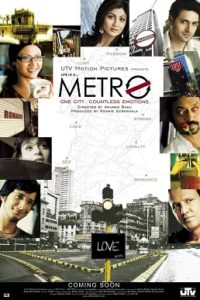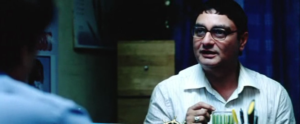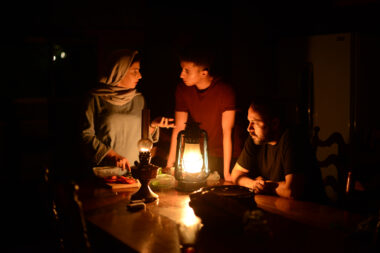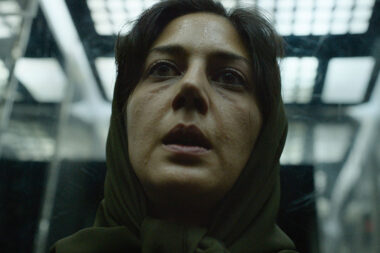Written by Silpi Patnaik
Would it be wrong to attribute the present conditions close to a much-speculated Third World War, where the obvious problems are more terrifying than just death and ruin?
In times like the present one when the whole of human race is stuffed behind doors and is forced to go against his grain of being a social animal, humanity stands at the threshold of a new-found absurdity that might spiral towards Nihilism- an extreme skepticism leading to a rejection of all moral standards. This tough fight against the vicious Corona Virus has brought upon us an immense fear for life and an unending term of isolation that might appear as harassment and abuse of Nature. Such a borderline arrest has all potentials of resulting in devastating consequences like anguish, emotional vacuity and a crumbling of identity. At such a pessimistic juncture, it is urgent to reflect upon the words of the post-modern philosopher Albert Camus-
“No matter how hard the world pushes against me, within me there’s something stronger, something better, pushing right back.”
During this choking phase of quarantine, Cinema can act as a saviour. Let’s fall back on three Bollywood movies that can help lit a candle in the pool of current hopelessness and inject in us that extra dose of motivation and an additional pint of courage to face this existential predicament head-on.
Dasvidaaniyan
In Dasvidaaniyan the central character Amar, who had been revolving in a quotidian life since thirty-eight long years adrift from all the humane aspects of existence, discovers to his shock that he has been attacked by a terminal illness and all he is left with is a last set of three months. Confronted with the coldness of death, Amar finds himself standing far-removed from the supposedly familiar society. Although caught up in the enmesh of a single and lonely life since ages Amar had been reduced to a breathing automaton, yet this time the blow of Nature came in a more visible form. While Amar was briskly drifting towards his finish, the bustling world around was busy spinning under the impressions of immortality. While he was the symbol of frigidity and inertia, the society represented everything that is vibrant, refreshing and ceaseless. Amar was stranded on confounding plateaus of alienation, dejection and disillusionment.
However, this division of Amar from the external world silenced the unnecessary commotion that had been otherwise annoying. A stony silence drove him to plunge within and made him realize that in actuality he was alienated from his own essential self. Amar, thus, decided to embark on a journey of self-exploration which would eventually make his life worth living. With a bucket list of ten compelling aspirations at hand, a determined-to-be-happy Amar sets on to fulfill each one of them with all his grit.
The most inspiring aspect of the movie is that it presented a protagonist who upon realization that he is an uprooted, alienated soul went ahead to do whatever morsel of justice he could to his precious life. Amar’s journey is individual but when he embraces the distasteful truth of life, takes it with a pinch of salt, and attempts to connect with his fundamental self, it transcends all personal boundaries and becomes a universal lesson to be remembered. It speaks to each one of us who is tethered to the mundaneness of the goings-on completely devoid of the basic instinct of the human within.
Amar is a little short, little stout, little bald, little innocent and a little everything like any regular Joe or ordinary Jane. But he becomes extraordinary when he refuses to get intimidated by the overwhelming turn of events and instead finds “something better, something stronger” to push right back against the dictates of a harsh Destiny. In his case it was the courage to pursue his unfulfilled dreams and experience them to the brim so that he can die happy.
Can we too discover something better, something stronger right inside ourselves to fight the alienation we are subjected to at the moment??
Life in a Metro
 Life in a Metro talks about various disconcerting aspects of alienation the urban milieu goes through in order to tick a survival in a ruthlessly fact-paced modern life.
Life in a Metro talks about various disconcerting aspects of alienation the urban milieu goes through in order to tick a survival in a ruthlessly fact-paced modern life.
Alienation, in modern times, can have ugly faces. Metro shows them through the emotional estrangement between a husband and wife due to a breathlessly jam-packed professional life of the former; the separation of aged lovers due to the embarrassment it entails on their adult children; the divorce of a middle-class girl from her values and morality in order to carve a niche in the cut-throat corporate climate; and the social distancing which an approaching thirty year old spinster experiences when things in her life don’t happen the way they are ideally expected to happen.
The movie depicts the loneliness of the characters and how each one of them grapples with it at a subliminal level. Although sacrifices and trade-offs are made by the characters in a robotic manner to achieve a virtual happiness, yet they become human when they understand that the harrowing hollowness underlining their lives is a result of alienation from their innermost selves. While some put up a worthy battle against their personal spiritual vacuum, some others get pinned down by the circumstances. The takeaway, however, lies in the narrative of the characters who emerge successful in connecting with their lost beings.
When the otherwise insensitive husband apologizes to his neglected better half; when the over-aged lady strongly resolves to move ahead with her lost and found lover; when the small town girl confronts her vices and identifies that it is true love that can nourish her; when the awkward spinster shuns the superficial reservations and decides to settle down with the unrefined yet sensible guy, they all turn fighters at their own rights. Although a savage dimension of the world had alienated them from their primitive roots, yet they fought through. They consequently found “something better and something stronger within” themselves to push back the malevolent universe and invent the silver lining in their own skies. They could have experienced this happiness much before than they actually did and saved a lot that they had lost, dissolved and changed over time. All they needed to do was pause, introspect, interrogate and rethink about their lives. Yet they did all of it when walloped, whacked and whipped by Time.
The alienation that we are encountering today demands a similar kind of pausing, introspecting, soul-searching and finally finding that “something stronger, something better” within ourselves to push the world back in its attempt to defeat us.
Talaash
 Surjan, an introverted cop-hero, who has turned conflicted and anguished after the sudden demise of his eight-year-old son due to drowning, holds himself responsible for the mishap and is seen battling with his guilt-conscience. Hooked to his remorse, Surjan’s social and personal lives have somehow come to a cold halt. He has turned socially awkward and despite sharing a single roof with his wife, Roshni, he stands alienated from her existing in his seemingly transparent bubble of sorrows and nostalgia. Although Roshni strains to take baby steps into the world outside, Surjan chooses to stay lonely and seethe in the angst of incompetence.
Surjan, an introverted cop-hero, who has turned conflicted and anguished after the sudden demise of his eight-year-old son due to drowning, holds himself responsible for the mishap and is seen battling with his guilt-conscience. Hooked to his remorse, Surjan’s social and personal lives have somehow come to a cold halt. He has turned socially awkward and despite sharing a single roof with his wife, Roshni, he stands alienated from her existing in his seemingly transparent bubble of sorrows and nostalgia. Although Roshni strains to take baby steps into the world outside, Surjan chooses to stay lonely and seethe in the angst of incompetence.
Against the backdrop of such a morbid course of life, Surjan comes across an intriguing case of road accident which leaves him boggled to the core and he frenziedly runs from pillar to post to unravel the hidden truth. Caught in the labyrinth of this disquieting incident, Surjan encounters a mysterious prostitute, a sinister turn of events and a range of cryptic people who grease the wheels of his investigation and very organically pull him towards a destination that brings both his professional and personal searches to an end.
Probably Surjan too was ignorant about his need for reconciliation with his inner self. Yet he eventually achieves harmony with himself through his relentless endeavor to disentangle the messy net of this high-profile case, which in a way symbolized his quest for peace. Finally, a letter from his late son written through a psychic medium cements Surjan’s disjointed parts.
Surjan realizes that certain forces are beyond human control and therefore suspending individual roles and eschewing social responsibilities would only drive him to the point of dereliction. Solution lies in embracing the Higher Power and moving ahead with a greater strength and conviction.
Although Surjan was dragged down by the gravity of destiny, yet he persistently questioned the uncertainties, searched for the answers and succeeded in wrapping up the existential dilemmas. The skepticism and apathy that alienation had donned on him slowly melted into ashes and he emerged a Phoenix, once again able to experience love, life and light with his wife and the world around. It was through a consistent and indomitable search that Surjan discovered the seeds of “something stronger and something better within him” and was hence able to push back the overwhelming Destiny that had almost trampled him.
No doubt we are all broken, grieved and distressed in our own ways. Let the Alienation we are going through today act as a catalyst in our age-old search for the panacea that might make us whole, rooted and joyful once again.
Hope Cinema does the needful.














